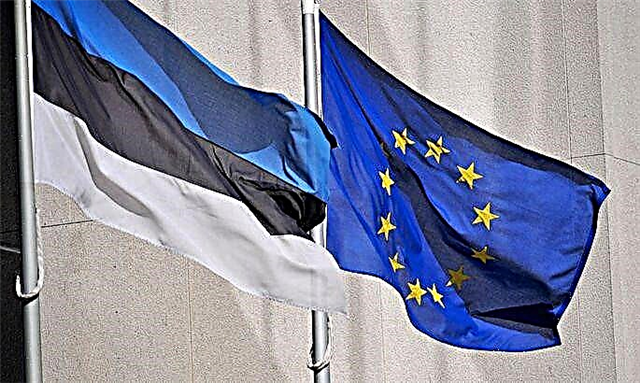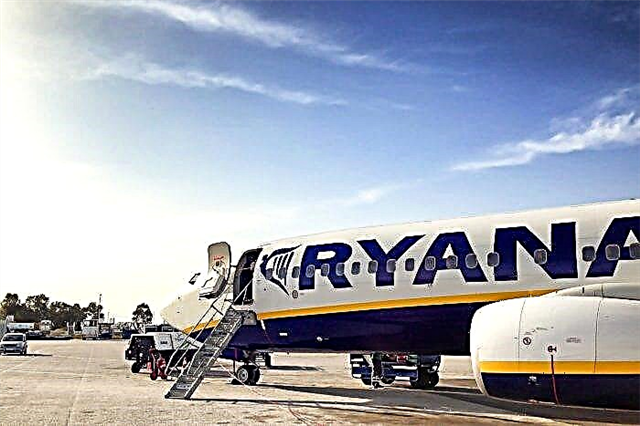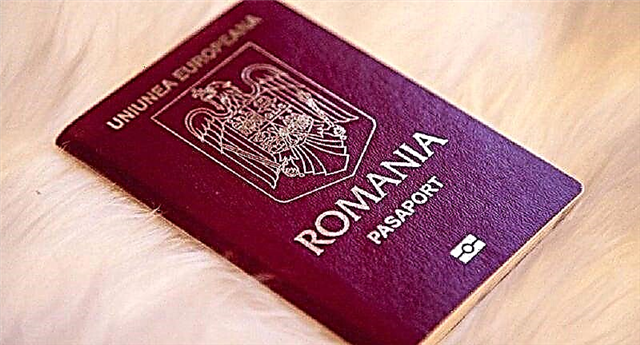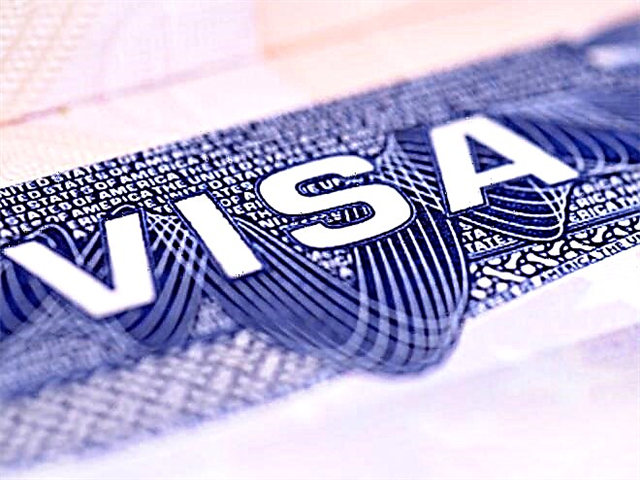Getting an education in Poland is the dream of many young people living in the CIS countries. Successfully passing the entrance exams and enrolling in the desired educational institution is worth a lot of effort, but that's half the battle. To legally stay abroad, you need to apply for a study visa to Poland. To do this, you can use the services of specialists or do paperwork yourself. In order to reduce costs, most students choose the latter. However, in order to obtain permission to enter the Schengen area, one should approach the issue of preparing documents with all responsibility, avoiding mistakes as much as possible.

What you need to know about a study visa to Poland
A visa stamp that allows you to live and study on the territory of the Republic of Poland, you will need:
- schoolchildren;
- full-time or part-time students;
- graduate students;
- teachers raising their qualifications;
- members of training programs (for example, exchange).
For different types of education, a permit to enter the country of the corresponding category is provided, each of which allows you to live and study in Poland for a certain time (from three months to one year).
To familiarize yourself with visa legislation and the procedure for obtaining a permit document, visit the official website of the Embassy of the Republic of Poland in Moscow.
Varieties of a study visa to Poland: differences and validity periods
Depending on the time required to stay in the country, the following types of student visas are distinguished:
- short-term Schengen visa or category C visa - gives the right to enter all countries belonging to the Schengen area (26 European states), and allows you to stay on their territory for 90 days in a six-month period. Such a mark in the foreign passport is affixed in the case of a short study;
- national long-term or category D visa - issued for one year to students or schoolchildren enrolled in an educational institution. After completing the first course and moving on to the next visa, it is extended for a further period of study in the country without leaving. Together with such a stamp, its owner receives the right to work abroad and the opportunity to obtain a temporary residence permit (residence card).
The differences in permits to enter the Republic of Poland lie in the prospects that a certain category of visa permission opens up for the student. For example, a short-term visa stamp allows its owner to gain knowledge and travel around Europe, and a category D permit gives the right to continue living in the country and the possibility of organizing a private business after issuing a residence card.
Student visa rules
In order to obtain a Schengen visa, upon initial application, the applicant will need to be present in person at the visa center. The applicant must provide their biometric data, including fingerprints and digital photograph. The fingerprinting and photographing procedure is carried out by specialists at the place of application. It is impossible to obtain a student visa to Poland without going through this procedure.
The procedure for collecting biometric data was introduced in order to protect the holder of a visa card from theft of personal information, as well as in order to exclude cases of fraud by immigrants and terrorism.
Applicant's fingerprints and photos are valid for 5 years.

The following are exempt from the provision of biometric data:
- children under 12 years old;
- persons with disabilities;
- heads of state and their families;
- members of the government and their families.
The fingerprinting procedure does not affect the cost of a visa permit and does not change the processing time for applications.
Documents required to obtain a student visa
So that the process of obtaining a permit to enter and stay in the Republic of Poland does not take too long, you need to carefully prepare the required package of documents. The list of required papers includes:
- national passport and copies of all completed pages;
- foreign passport and photocopies of all pages with marks or stamps. This document must be valid for at least three more months after the planned return from Poland;
- visa application form. You can fill out the form in English, Polish or Latin letters in Russian (transliteration);
- 2 new photos 3.5 x 4.5 cm (pictures taken earlier than 6 months will not be accepted);
- the original and copies of the old foreign passport or the presence of a mark in the civil passport about the cancellation or delivery of such a document;
- medical insurance in the amount of 30 thousand euros in case of emergency medical care or hospitalization;
- an invitation to study from a university as a basis for obtaining a permit to enter Poland for the purpose of study. A sample of a written document confirming the fact of enrollment:

In the process of making a decision to issue a permit, the application for a Polish visa is scrupulously studied by the consul. You can find out about all the nuances of filling out such a form, as well as download it on the official website of the Ministry of Foreign Affairs of the Republic of Poland.
Young people under the age of 18 must attach to the general list of documents:
- birth certificate;
- documents of parents (guardians);
- notarized permission to leave the country of origin;
- if the child is being raised by a guardian, confirmation (court decision) of the absence of other guardians will be required;
- an insurance policy where the parent is the policyholder.
If the child does not have his own passport, and his data is contained in the parent document, then the latter should have two additional pages.
Applying for a Category D visa for higher education requires the provision of additional documents:
- certificate of student enrollment in the university;
- training schedule;
- a document proving the fact of payment for training (for a paid form).
In addition, an applicant wishing to apply for a Polish visa must prove their financial viability and the fact of residence in the country. Any of the following options can be used as confirmation of the applicant's solvency:
- an extract (certificate) from the bank with data on the owner's account for the last three months (the account must have funds to pay for tuition);
- original and copies of the applicant's international payment cards;
- a sponsorship letter from a first-line relative confirming the degree of relationship or from a third party, a certificate from the bank indicating the sponsor's current account and the availability of funds on it.
The fact of residence on the territory of the Republic of Poland is confirmed by the presence of the following documents:
- original or copy of the reservation of a room in a Polish hotel;
- electronic confirmation of room reservation (screenshot or correspondence with hotel staff);
- bank statement confirming payment for the reservation with a stamp;
- a written guarantee from a Polish hostel with information about the owner of the establishment;
- if the receiving party is an individual, a written confirmation from him with data proving the identity of the receiving party.
Due to the fact that the visa policy of the Republic of Poland is changing, the full list of documents for the Schengen registration should be clarified at any Polish visa center in Russia.
Where can you apply for a study visa to Poland
When self-applying for a student visa, the applicant applies to one of the official diplomatic institutions of the Republic of Poland in Russia. In particular, the applications of applicants for a student visa are accepted by the Polish embassy and consulates.The Polish Embassy is located in Moscow, and the Consulates General of Poland are in Moscow, St. Petersburg, Kaliningrad, Irkutsk.
Poland Visa Application Centers are distributed throughout the Russian Federation. You can find the nearest service and visa center through the official website.
In diplomatic missions, you may encounter queues and inconvenient working hours of the institution that do not coincide with your schedule. Therefore, in order to avoid such inconveniences, some applicants use the services of private firms involved in visa processing. This saves time and hassle, but not money.
How much does a student visa cost and how long does it take to get it
The cost of the visa stamp includes the visa fee and payment for the services of the visa center. The price for obtaining a student visa depends on the category of the stamp:
- short-term Schengen - 35 euros (payment is made in euros when applying);
- long-term visa stamp - 60 euros for citizens of the Russian Federation, for Ukrainians - free of charge.
If the applicant wants to get a permit to enter the Schengen area urgently, then he will have to pay a double visa fee.
You will have to pay an additional 20 euros for the services of the Visa Application Center.

It should be borne in mind that obtaining a stamp for entry into the Republic of Poland will require spending personal time, especially since the procedure may take a month if additional questions arise. However, the official processing time for a Schengen application for students is up to 10 working days from the date of submission of all documents by the applicant.
Reasons for refusing a student visa to Poland and what to do if refused
In case of refusal to issue a visa stamp, an appropriate stamp is put in the passport, and the applicant is issued a form that describes the reasons for the refusal and steps to resolve the situation.
Refuse to obtain a permit to enter the Republic of Poland may be in the event that the applicant has not submitted all the documents or the validity of the certificates has already passed. Then you need to collect a full package of relevant documents and apply for a visa again.
If the visa was not issued to the student for unknown or subjective reasons, then the following can be done:
- take an appeal form at the visa center;
- seek advice from the consul;
- use paid services of specialists who will help solve the problem.
A negative decision of the consulate or visa center on the student's application is not final. You can try to correct the situation, for example, by filing a complaint or eliminating the existing shortcomings, and applying for a visa again.
How to renew a student visa
You can extend the validity of your student visa stamp without leaving the country. To do this, the student needs to apply to the voivodeship at his place of residence 50 days before the expiration of the visa. The package of documents for the renewal of the permit includes:
- a statement indicating the reason for extending the stay in the country;
- a certificate from the university on the continuation of studies;
- valid passport;
- certificate of place of residence;
- new photos;
- medical insurance;
- an extract from the bank on the availability of funds to pay for tuition on the account.
In addition to extending the visa for the next academic year, the student has the opportunity to apply for a residence permit in Poland.
How to get a Residence Card
A residence card or a temporary residence card in the Republic of Poland is valid on the territory of all Schengen countries and is issued for a period of 1 to 3 years. Such a document can be obtained in Poland by submitting an application to the voivodeship closest to the place of residence 45-50 days before the expiry of the student visa.

The residence card replaces the student visa stamp and entitles its owner to repeatedly cross the Polish border and legally work in the country.
Is it possible to work on a student visa
The presence of a stamp for staying in the Republic of Poland for the purpose of study is not a permit for official employment in the country. However, on the basis of a study visa and an invitation from the employer, the student can obtain a work permit.
Internship, which is part of university studies, does not require a special permit and is not considered employment.
Conclusions
Although studying in Poland requires a lot of effort and a scrupulous approach to preparing the documents necessary for staying in the country, it is worth it. European-level education at an affordable price, travel to the Schengen countries, new acquaintances and business contacts open up opportunities for further successful life abroad.











